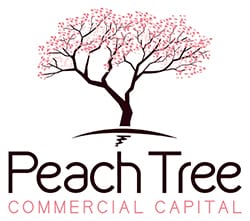The government shutdown in January had an impact on many facets of small business operations. One direct impact comes from the SBA, where a backlog of loan applications occurred and will take time to approve or deny. Given this delay, small business owners currently seeking capital are wise to establish a backup plan to utilize private funding while the SBA reviews their loan applications. A broker can assist you in developing a plan and sourcing funds to balance cash on hand during a time of transition at the SBA. These tips can help you establish a foundation for your funding plan.
Look for an SBA Preferred Lender
The first thing you and your broker can do is look for a funding source that is classified as an SBA preferred lender, such as many of the lenders in our network. This allows loans to be processed faster and without as much government involvement. This can help improve the pace of approval, allowing you to access capital more rapidly. This is the best option if you have not yet started to apply for an SBA loan and don’t want to get caught in the backlog. While there is no guarantee that approval will happen more quickly, the process is often much easier through an SBA preferred lender.
Leverage short term alternative funding sources
While a credit card advance or a digital lender can provide quick access to capital, they should only be considered after careful consideration and planning. Credit card advances can have interest rates ranging between 15% and 18%, while alternative online lenders, like Kabbage or OnDeck, can have interest rates as high as 80%. This is partially why they are able to provide quick approval. Their risk is mitigated by high-interest rates, which, in the end, means you pay more to access money. Both of these options will have higher costs and may take longer to pay back. This is why they should only be an option in select scenarios. A better option for fast cash will often be factoring or hard money loans. Both of these can move from application to cash in your bank account in a few days. They are typically cheaper than other short term financing options mentioned above. As a comparison, hard money rates are often 10% – 15% annually, while factoring may offer an initial advance of 80% – 90% cash with rates of 1% – 3% depending on how long your clients take to pay their invoices. If you need access to alternative lenders, our team is always available to help.
Talk to your customers and partners
Make sure to keep in contact with your customers and partners during this process. If there is a delay in completion of a project it is essential to keep people up to date. Strong communication preserves relationships. If you have fallen behind on payments, talk to vendors about setting up a payment plan. This can help you keep your day to day operations running smoothly, and help you maintain strong vendor relations. On the client side, you can try collecting accounts receivable to provide access to much-needed capital. Offering options for early payment on accounts, such as 5% off payments made by a certain date or cash-on-delivery discounts, can speed up your collection and provide the capital you need until SBA loans are approved.
Talk to a broker
Even without a government shutdown, SBA loan approval has always been a notoriously lengthy process. A good broker can connect you with preferred lenders who will expedite the process, or provide other forms of financing which close much more rapidly than SBA loans. Our team is standing by.

